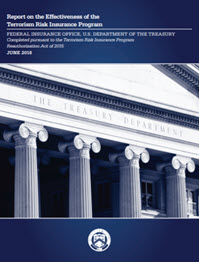The Real Estate Roundtable has released its FY2018 Annual Report “Building Success,” which reports on the organization’s policy activities from July 1, 2017 to June 30, 2018 and outlines its policy priorities for the coming year.
The Report includes summaries showing continued progress on the policy front, including:
Newly elected Roundtable Chair Debra A. Cafaro (Chairman and Chief Executive Officer, Ventas, Inc.) emphasized that The Roundtable’s policy agenda remains full of key issues that require our engagement as a non-partisan industry voice. “Above all, we must uphold our independent and respected position on Capitol Hill, emphasizing our optimism about the economy and the positive contributions the real estate industry provides as a job creator and as a cornerstone for retirement savings. We are committed to proactively advancing policies that promote a healthy balance of capital and people flows to create sustainable economic growth that is good for our members, our industry and our national economy,” said Cafaro.
The publication includes a listing of all Roundtable members, as well as the FY2019 Board of Directors and Committee Leadership, and has been mailed to all Roundtable members, congressional offices on Capitol Hill, and is available online.
International regulators this week urged banks to speed up their transition plans away from the London Inter-bank Offered Rate (LIBOR) to a new standard for setting the price of trillions of dollars of loans and derivatives worldwide. LIBOR is an important reference rate for commercial real estate and the broader economy, underlying approximately $373 trillion worth of cash and derivative contracts globally.
 |
The Fed's Alternative Reference Rates Committee (ARRC) will meet on July 19 to address risks in contract language and actions that could minimize disruptions associated with a possible end to LIBOR. |
 |
With LIBOR set to expire at the end of 2021, the status of reform efforts and their impact on commercial real estate finance is profiled in Joseph Forte's recent article, " Après LIBOR: Black Swan or Y2K ." . |
The Roundtable's RECPAC has formed a LIBOR Working Group to address this challenge and work toward the development and implementation of an effective, new replacement benchmark that does not impair liquidity, needlessly increase borrowing costs or cause market disruptions.
The federal government's Terrorism Risk Insurance Program has been effective in making terrorism risk insurance available and affordable throughout the United States, according to a recent report by the U.S. Department of the Treasury’s Federal Insurance Office.
 |
The Treasury based its June “Report on the Overall Effectiveness of the Terrorism Risk Insurance Program” on marketplace data collected for the past two years, along with public comments such as those submitted by the broad-based Coalition to Insure Against Terrorism (CIAT), which includes The Real Estate Roundtable. |
Without Congressional action, the Terrorism Risk Insurance Program, authorized by TRIPRA, will expire on Dec. 31, 2020. The Roundtable is working with industry partners to develop a proposal that would make terrorism insurance available for the long-term.
The Roundtable and 28 other real estate industry organizations – representing more than 10 million jobs – yesterday launched Careers Building Communities, a website highlighting diverse career paths within the real estate sector. The public policy area of the site links to Roundtable resources.
 |
Careers Building Communities highlights diverse career paths within the real estate sector. |
By attracting diverse talent to the many careers available across the built environment, Careers Building Communities also responds to a consistent theme among industry stakeholders – the increased need for talent.